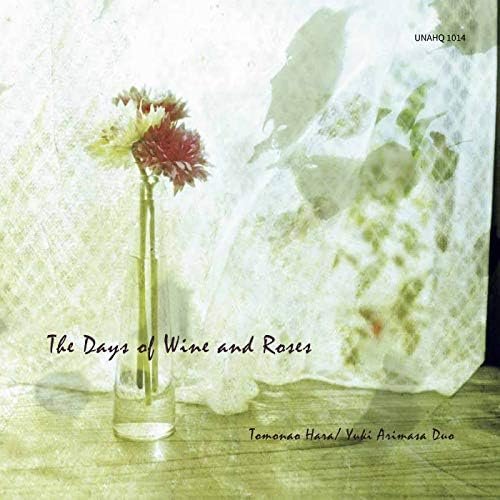Yuki Arimasa and Tomonao Hara Duo (The Days of Wine and Roses)
Yuki Arimasa and Tomonao Hara Duo Vol. One (2012) and “The Days of Wine and Roses”
Yuki Arimasa – piano
Tomonao Hara - trumpet
Reviewing two CDs together never seems to offer enough space to each work, but these two recordings, made two days apart, go together marvelously. “Vol. One” features Arimasa’s and Hara’s own compositions, while “The Days of Wine and Roses” features standards. If forced to give the nod to one or the other, “Vol. One” is perhaps the more impressive because the level of their own compositions is so high. Fortunately, you do not have to choose only one. You want both. The duos are pure jazz. They are not out to impress with huge displays of chops orgimmicky reworkings of standards or overly intricate compositions. These two recordings, of ten and eleven songs each, are more impressive for not trying to impress.
Hara and Arimasa just get right down to work and work fantastically. Theyare engaged with the songs and with each other, but they clearly are also engagedwith the listeners. They create gorgeous, entrancing music on every cut. Their takes on the standards are unique and original. Their choices, from GeorgeShearing’s “Conception” to George Gershwin’s “But Not for Me,” are excellent, butexcept for the first two songs, are not that commonly played standards. Those rarechoices let the two of them enter into the songs and find their own ways to expresswhat they have to say even more deeply. They are of like minds in this aim of playingrelaxing music that energizes, of direct music that becomes involved, of playing fromthe heart but reaching the mind as well. They find the heart of the songs together.
The textural beauty of the CDs is what will impress most listeners. At times thesongs, both the originals and the standards, are as delicate as fine tissue paper, slowing to a single note, then building to an exchange of notes, letting in as muchsilence as needed to make the notes resound. At other times, they rollick along with aregular rhythm, happily pausing to linger over a harmony or melodic line that feelsright. So much recorded jazz tries to be exciting but ends up being overplayed. Hara andArimasa are more concerned with beauty. By aiming for beauty, though, they end up being more exciting. Their accomplishment here is to create two CDs of passionate, beautiful music. Both recordings are recorded extremely well, perfectly in fact, so youcan really hear their ‘voices’ clearly and intimately.
Yuki Arimasa’s site: http://www.scarecrowmusic.com


